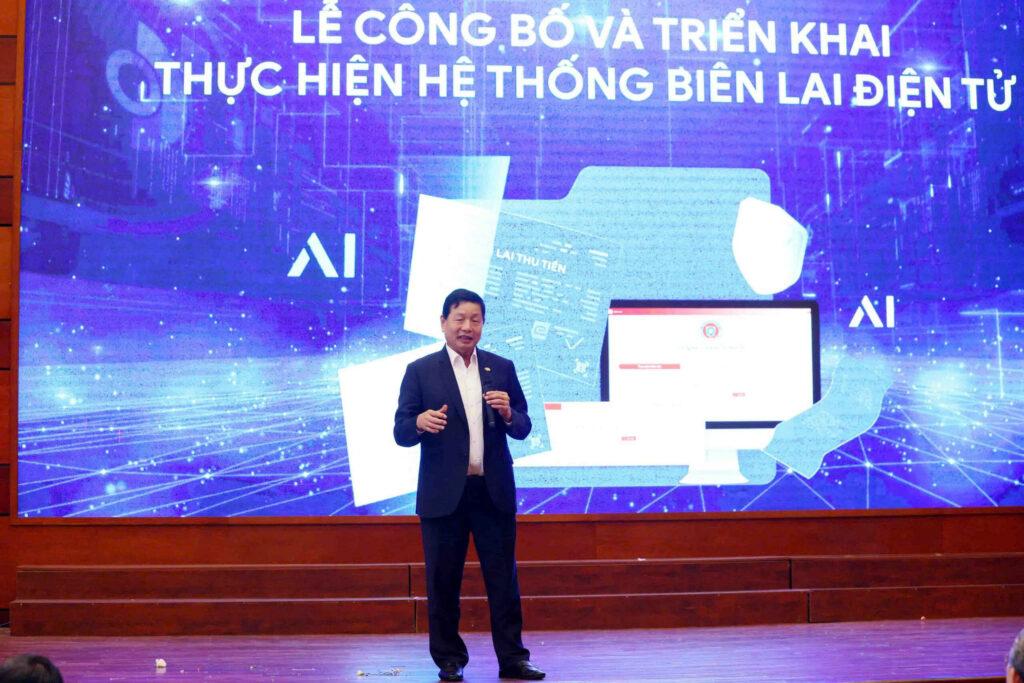FPT and the Ministry of Justice: Kyta Platform Drives Breakthrough in Civil Judgment Enforcement Digitization
Vietnam’s Ministry of Justice and FIS launch the AI-powered Electronic Receipt System on Kyta Platform—digitizing civil judgment enforcement nationwide with 3,000+ receipts and VND 2,000B processed in the first week.
Jul 18 ,2025 - min readOn July 2, 2025, the Ministry of Justice officially launched the Electronic Receipt System, marking a major step forward in the digital transformation of civil judgment enforcement. Developed by FPT IS on the Kyta Platform, the system leverages Artificial Intelligence (AI), AI-OCR, and digital signatures to fully digitize the receipt and payment process.
In just the first week of its pilot phase (from June 23), the system recorded nearly 3,000 electronic receipts, processing close to VND 2,000 billion that is a clear evidence of its effectiveness and nationwide scalability.

Kyta Platform – The Technological Core of the System
Kyta Platform is a comprehensive digital solution that deeply digitizes legal and financial procedures, especially in judgment enforcement. The Electronic Receipt System is a standout module, integrating powerful capabilities such as:
-
Document scanning and auto data extraction using AI-OCR
-
Approval and receipt number issuance via digital signatures
-
Centralized storage and real-time access
-
Data aggregation and reporting to support rapid decision-making
More than just a management tool, the system represents a new operational model—transparent, efficient, and resource-saving.
Tangible Benefits for All Stakeholders
-
THADS Officers: No more manual handling of paper files; everything is processed and retrieved digitally, minimizing errors and accelerating performance.
-
Citizens & Enterprises: Receive receipts via email/SMS, access information anytime, anywhere; ensures full transparency in the payment process.
-
Leadership & Management: Real-time reporting, full oversight, and faster, more accurate decision-making.
Nationwide implementation from July 2025 will enable tighter transaction control, minimize potential losses, and boost credibility and efficiency in civil enforcement.

A Rapid Rollout Aligned with National Strategy
The system was developed and deployed in just 30 days—an impressive pace for a nationwide solution. It reflects the concrete realization of Resolutions 57-NQ/TW and 18-NQ/TW, which emphasize digital transformation and streamlining the government apparatus.
Mr. Nguyễn Thắng Lợi – Director General of the General Department of Civil Judgment Enforcement – shared:
“The system was built on three key principles: issuing electronic receipts via email/SMS, centralized data storage, and enhanced transparency in financial operations. Early results confirm this direction is effective and well-founded.”
Confidence in a Modern Justice Future
At the launch event, Mr. Trương Gia Bình – Chairman of FPT Corporation – emphasized:
“Digital technology and AI are the keys for the Ministry of Justice to become one of the world’s most modern justice institutions. The Electronic Receipt System marks a foundational step toward reforming administrative justice - efficient, cost-saving, and unrestricted by geography.”

He also affirmed that Kyta Platform is a prime example of how AI-powered digital public administration systems can simplify complex workflows and complete tasks that used to take hours or days in just minutes.
The Road Ahead: Comprehensive Digital Justice
Moving forward, the Ministry of Justice will continue deploying additional digital modules on the Kyta Platform, including:
-
AI-assisted decision-making in enforcement,
-
Electronic complaint handling,
-
Integration with national public service portals.
All of these efforts aim to build a fully digital, transparent, and citizen-centric justice system.
FPT/FPT IS remains committed to supporting the Ministry of Justice and other government entities in the national digital transformation journey—bringing Vietnamese technology to play a vital role in shaping a modern public administration system that better serves its people.
Reference
Author: Lucy Le
